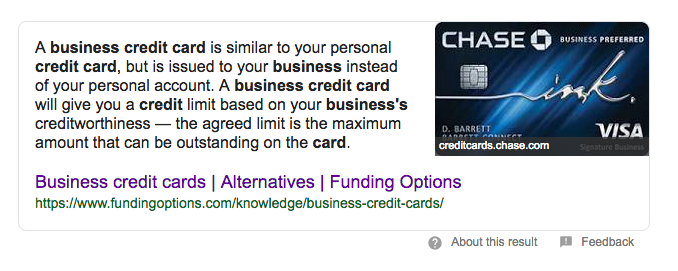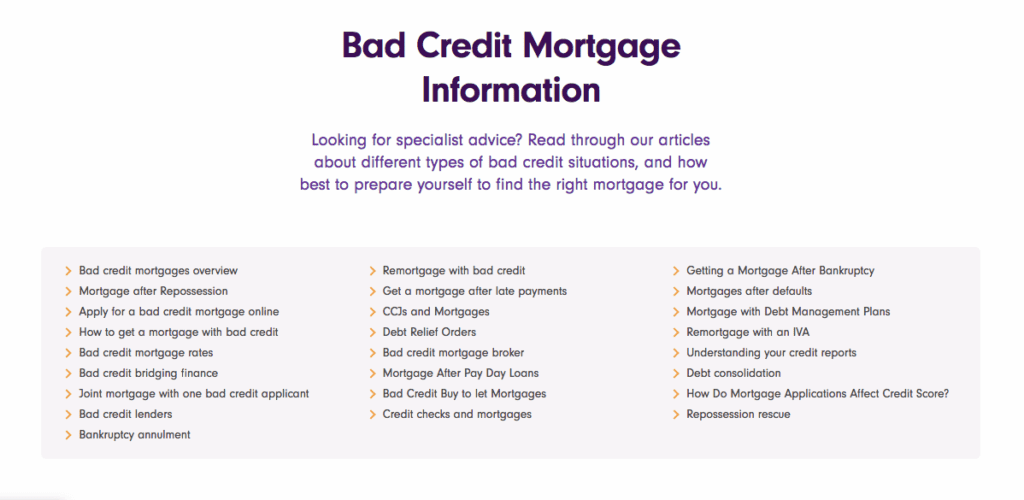Enhanced copy is different to regular SEO copy. If you haven’t brushed up on our enhanced copy article already, this type of copy differs by its length and content. Enhanced copy is generally longer than SEO copy, roughly 700+ words, and its main purpose is to educate the user, rather than pushing products and services they offer.
Enhanced copy is especially important in the financial market. We run through why it’s important, essential things to consider while writing financial copy and successful existing examples.
Why should you use enhanced copy for finance pages?
Finance may not be the most exciting of topics, but as we were taught more about Pythagoras’ theorem than taxes it’s a subject we all need to brush up on. This is why the financial market is flooded with Q&As. For example, the term ‘how much can I borrow mortgage’ has roughly 27,000 searches a month and ‘how to get a loan’ has around 1000 searches. With such high search volumes, you’ll want enhanced copy to try and target these terms. If done properly, when somebody googles a finance related question, your copy could lead them directly to your website.
With most financial keywords, the highest ranking results are from sites with a high domain authority. This will often be comparison sites or direct lenders that explicitly explain their products or services. In order to compete against these big names, enhanced copy is essential and is one of the most important ranking factors.
These sort of websites which discuss finances, investments or taxes are referred to as ‘Your Money or Your Life’ pages. Google describes these as pages that “could potentially impact the future happiness, health, financial stability, or safety of users”. So, it’s important to be accurate and include unbiased content.
Because these finance websites can have a major impact on people’s lives, having extended copy allows you to provide further information that ultimately makes the user more informed and educated before making a financial decision. This makes the website a more trusted resource as the content has considered several aspects, which is more likely to increase authority and overall ranking.
Read more: A Guide to the Google E-A-T & YMYL Update
Things to consider when writing for finance websites
When writing for such important pages, you should take more care to avoid any misleading information and be as clear as possible. As stated, these pages are classified as YMYL, so the more trustworthy you make the content, the better. For example, you could include quotes or advice from financial experts. If applicable to your site, you should also ensure your copy adheres to the FCA’s guidelines.
What is the FCA and how does it affect copy?
It’s important to decipher whether you’re under the watchful eye of the FCA aka The Financial Conduct Authority. The FCA is a conduct regulator that monitors over 58,000 financial companies to check that everything is up to scratch. They monitor content by companies that offer consumer credit, which is essentially financial services to the individual.
If your company offers loans to businesses, you don’t have to worry about these regulations as you would not be considered in the FCA market. This is because the FCA sees individuals at higher risk than businesses and tries to ensure that they are being treated fairly when it comes to their finances.
Writing within FCA guidelines
If your company is FCA regulated it’s essential to make sure your content is reliable. According to the FCA website, “Financial markets need to be honest, fair and effective so that consumers get a fair deal”. This is why the FCA have their very own handbook with rules for firms. It’s beneficial to have a flick through this before crafting any content. General guidelines include that financial promotions are clear, fair and not misleading, so ensure you are thorough with your product knowledge. If something on your website is misleading it could lead to a fine or your licence being suspended.
Target commonly asked questions
As it’s essential to provide information in this market, the best place to start when writing enhanced copy is to research which questions are being asked. Sites like Answer the Public are great for this. Once you’ve determined the questions, find what keywords to target. Combining keywords with questions provides great H2s and increases your chances to rank. For example, if ‘secured business loan’ was one of your keywords, ‘am I eligible for a secured business loan?’ would be a good H2.
If you’d like more tips on writing enhanced copy, read our post.
Successful examples of enhanced copy
Just in case you won’t take our word for it, there are some pretty good examples of where expanded copy has played a key part in page rankings. Take the search term ‘business credit card’. Renowned business MoneySuperMarket is number 1 and Funding Options has acquired the featured snippet and position 4. Here’s how enhanced copy has helped that:

- Both sites use commonly asked questions as H2s such as ‘who can get a business credit card?’ or ‘how much do business credit cards cost?’. These H2s also include the obvious keyword ‘business credit cards’.
- The MoneySuperMarket page has a word count of roughly 1700 and Funding Options word count passes 2100. This is a good indication of what to aim for. With such an important topic, it’s always better to provide too much information rather than too little. But beware of fluffy content. A high word count is only beneficial if it’s well written, concise and genuinely useful to the reader. Adding too much fluff can do more harm than good, especially if that content is ram-packed full of keywords.
- Finally, Funding Options has included a brief paragraph simply stating what a business credit card is. This paragraph made the featured snippet because it’s concise, it answers the question directly and includes the necessary keywords. If you’d like to learn more about Featured Snippets read our post How To Find & Acquire Featured Snippets.
Another successful example of enhanced copy is Online Mortgage Advisor. The search term ‘bad credit mortgages’ has over 12,000 searches a month and OMA ranks in position 5 and has also acquired the featured snippet. This is because their bad credit page goes through the topic of mortgages with a fine tooth comb, as seen below. They answer any questions users might have including ‘what credit issues will mortgage lenders accept?’ and ‘how to improve your credit’.

Because OMA discusses consumer credit, you can assume it’s regulated by the FCA. This means that they copy adheres to the FCA’S principles, mainly that “consumers are provided with clear information and are kept appropriately informed”. This is demonstrated by their honest and thorough advice throughout. To make their site even more trustworthy, they even include an FCA disclaimer, stating “All advisors working with us are fully qualified to provide mortgage advice and work only for firms who are authorised and regulated by the Financial Conduct Authority.” This way users can be sure they are getting expert advice.
Don’t fancy writing financial copy yourself? We’ve worked with a number of financial clients. Challenge us now and we’ll get straight to task.
